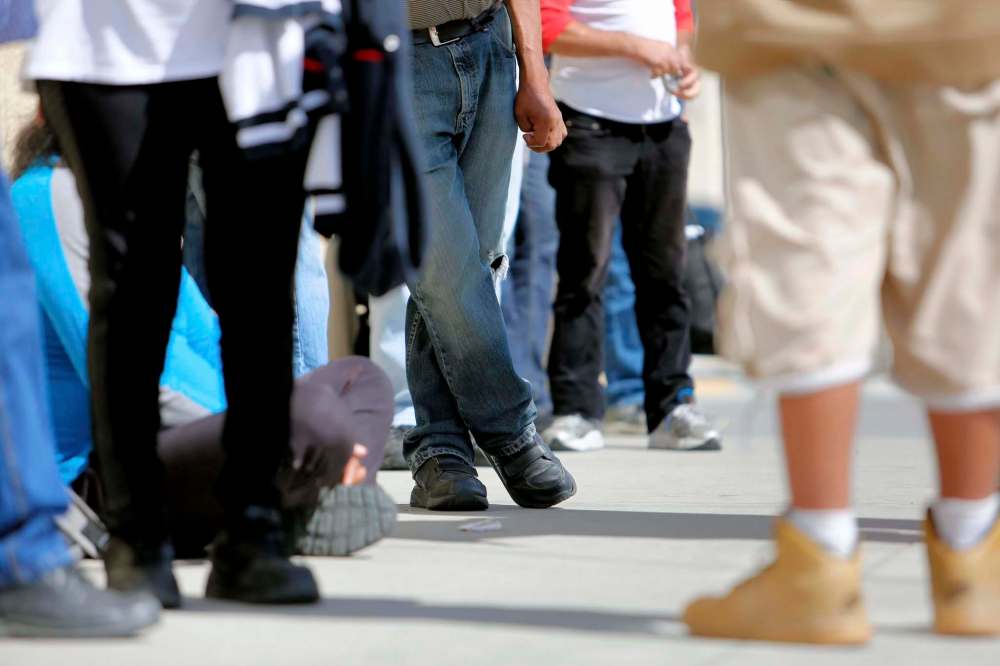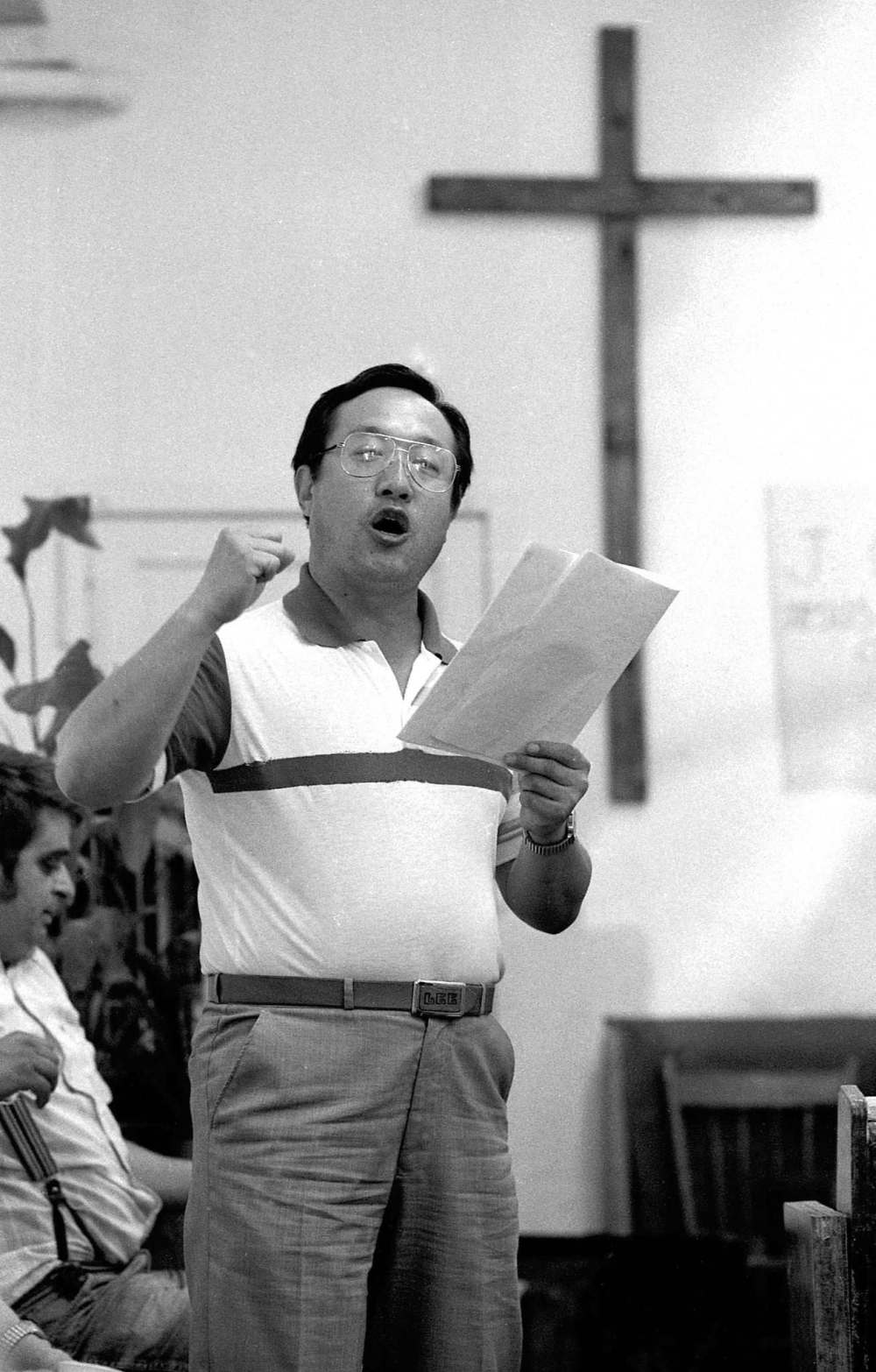A murderer’s legacy of love
Ex-con helped build Siloam Mission's empire of caring 30 years ago
Advertisement
Read this article for free:
or
Already have an account? Log in here »
To continue reading, please subscribe:
Monthly Digital Subscription
$1 per week for 24 weeks*
- Enjoy unlimited reading on winnipegfreepress.com
- Read the E-Edition, our digital replica newspaper
- Access News Break, our award-winning app
- Play interactive puzzles
*Billed as $4.00 plus GST every four weeks. After 24 weeks, price increases to the regular rate of $19.95 plus GST every four weeks. Offer available to new and qualified returning subscribers only. Cancel any time.
Monthly Digital Subscription
$4.99/week*
- Enjoy unlimited reading on winnipegfreepress.com
- Read the E-Edition, our digital replica newspaper
- Access News Break, our award-winning app
- Play interactive puzzles
*Billed as $19.95 plus GST every four weeks. Cancel any time.
To continue reading, please subscribe:
Add Free Press access to your Brandon Sun subscription for only an additional
$1 for the first 4 weeks*
*Your next subscription payment will increase by $1.00 and you will be charged $16.99 plus GST for four weeks. After four weeks, your payment will increase to $23.99 plus GST every four weeks.
Read unlimited articles for free today:
or
Already have an account? Log in here »
Hey there, time traveller!
This article was published 23/08/2017 (3079 days ago), so information in it may no longer be current.
A downtown shelter that helps hundreds every day got its start 30 years ago Thursday, thanks to an unlikely founder whose story is seldom told but speaks volumes about people getting second chances.
Suk Woon Lee was a Korean-born importer who shot and killed his wife in 1980 and was sentenced to life for second-degree murder.
“He was in prison — it’s where he found God and his faith,” said Judy Richichi, Siloam’s director of major gifts and corporate relations. “When he came out of prison, there was nowhere to go for people like him. He wasn’t treated well. He wanted to make a difference and started a soup kitchen. He called it Siloam,” she said, after a healing pool in the Bible.

“It’s a place for healing mind, body and soul. All of that needs to be revived before you can move forward.”
When Lee was granted escorted time away from Rockwood — the minimum-security facility next to Stony Mountain prison — he started attending the Korean Nazarene Church in Winnipeg.
He wanted to give back to society and set up Siloam Mission’s first soup kitchen on Main Street in 1987 with donated pews and a flock of church helpers.
“Siloam, at one point, had difficulty surviving because of a lack of resources,” Richichi said. Its biggest resource was people with good intentions.
“The people who came here right in the beginning came with the right purpose — to serve and to give and to love. If it’s something good and purposeful, it finds its way to survive.”
Thirty years later, Siloam Mission has grown to the point where it includes a multi-million-dollar shelter on Princess Street that offers privately-funded health care, job training, social and spiritual support with 8,800 volunteers.
“It’s a blessed ministry because the intention of the building was done right,” said Richichi, who has been with Siloam since starting there 10 years ago as an accountant. In 2007, the number of volunteer hours logged at Siloam was 25,000. Now it’s 85,000, she said.
“The volunteers come in and breathe life into the place. It keeps us fresh and we get as much from them as they do from us.”
The charity has grown from serving 180,000 meals a year to 500,000, and from 60 available shelter beds to 110. “We’re full every night,” Richichi said. “In the last year, we were turning away 20 to 30 people a night.”
The rising demand for shelter follows a tripling in house prices in Winnipeg in the past decade or so. Homes are priced out of the reach of many and more people need to rent, but there aren’t enough affordable rental units, she said.
Renting a $1,000-a-month apartment and having the required first and last month’s rent is too much for a single person earning minimum wage — so when an affordable unit opens up, renters have to compete.
“If you’ve had any sort of crisis or strife or inconsistent patterns of living, you’re the last one to get in,” Richichi said. Siloam has moved beyond food, shelter and clothing — “People need way more than that.”

The charity plans a $17-million expansion and so far has raised 70 per cent, with contributions from the federal and provincial governments. The work starts this fall, with a new dining room behind the current building.
When it opens, it will hold over 400 people and have room for an indoor lineup of about 100 so folks don’t have to wait outside for a meal when it’s -40 C or extremely hot, Richichi said.
Siloam is making space for 50 additional emergency shelter beds, with a separate private shelter area for up to 33 women. It will also be home to an expanded health centre, a new mental-health area and a new “progressive services centre,” including transition and employment services.
The longer people stay in a shelter, the harder it is for them to move on, Richichi observed.
“If your life has suddenly crashed, we want to help you as quickly as possible… ‘How do we help you quickly and efficiently? What is it you need? A home? A car?’ When you look at life in general, we need connections — if you don’t have any connections the mountain is so much harder to climb.”
No one knows what Lee would think of Siloam Mission today. He disappeared in April 1990 while on full parole — one month before he was to be deported back to Korea. His Canada-wide warrant for parole violation still stands, Winnipeg RCMP say. Richichi said she never met Lee, but has heard his story about seeking redemption and it still resonates.
“Everyone can have a second chance. Siloam is about second chances — putting the past behind you and finding a better future,” she said.
“Whether or not we end homelessness, we can certainly create a professional process to move people forward as quickly as possible into homes and mainstream society.”
carol.sanders@freepress.mb.ca

Carol Sanders
Legislature reporter
Carol Sanders is a reporter at the Free Press legislature bureau. The former general assignment reporter and copy editor joined the paper in 1997. Read more about Carol.
Every piece of reporting Carol produces is reviewed by an editing team before it is posted online or published in print — part of the Free Press‘s tradition, since 1872, of producing reliable independent journalism. Read more about Free Press’s history and mandate, and learn how our newsroom operates.
Our newsroom depends on a growing audience of readers to power our journalism. If you are not a paid reader, please consider becoming a subscriber.
Our newsroom depends on its audience of readers to power our journalism. Thank you for your support.

